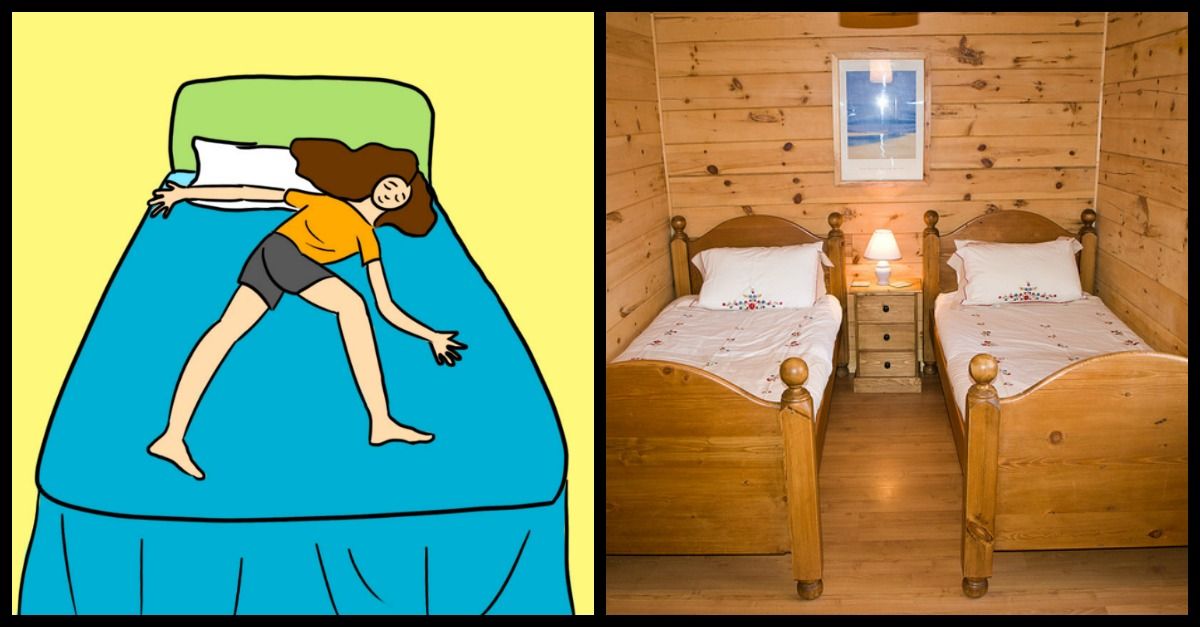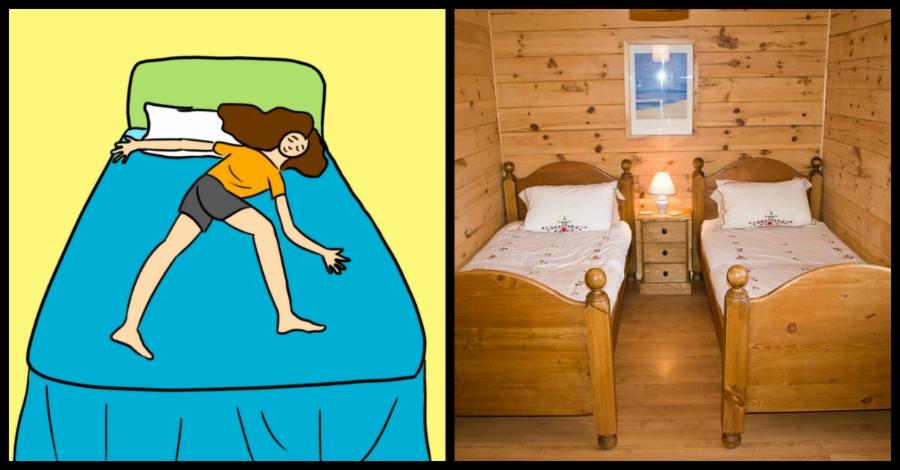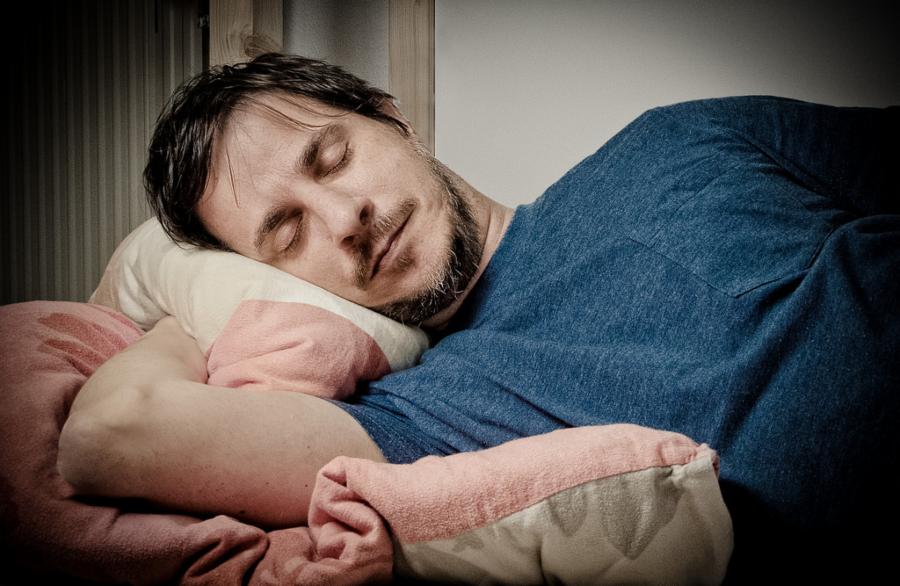Advertisement
7 Reasons Why Sleeping Alone Is Good for Your Health on All of These Levels
By David Clarke
Advertisement - Continue reading below


Do you feel comfortable, loved, and safe when you share a bed with your significant other? There’s a good chance those feelings are masking some other side effects.
Fighting over blankets, snoring, and a lack of personal space are just a few reasons why co-sleeping might be affecting your health.
Millions of Americans suffer from a lack of sleep and much of that is caused by sleeping in a shared bed.
Sleeping in the same bed is a rather new phenomenon. In the past, couples slept alone and visited with each other only when the mood struck. In many cases, they didn’t even share a bedroom, let alone a bed! Shared beds became the norm when poor families started moving to city areas and could no longer afford an apartment large enough to offer separate bedrooms.
Pro Tip #1: Stretch out to your heart’s content.

Unless you like curling up into a little ball and squishing yourself to one side of the bed, sleeping alone can offer you a big win. If you roll around in your sleep, you have more options for moving around your bed, meaning less time waking up your bed buddy.
Stretch out before you sleep and you’ll find yourself more relaxed and ultimately in a deeper sleep.
Pro Tip #2: Sleeping at the comfort level you choose.

Don’t like blankets? Don’t sleep with them! Want a down comforter? Buy one and sleep with it every single night. When sleeping alone, you get to choose the type of sheet you sleep with, the blankets you use and the pillows that populate your bed. You also don’t have someone stealing your blankets or even your pillow!
Pro Tip #3: It’s a hot or cold thing.

Temperature can become a problem for many co-sleeping couples. If your partner likes the heat turned up at night, you can always close heating vents in your bedroom. You can also remove or add blankets and sheets to create the temperature that is just right for you.
Pro Tip #4: Set your own sleep cycle.

Most people don’t go to bed and wake up at the same time. When you share a bed there’s a good chance your alarm will wake up your partner or vice versa. Ultimately, one partner needs to match the other person’s sleep cycle and based on lifestyle needs – such as waking times for work – that probably doesn’t work perfectly. With your own bed, you set your sleeping and waking times without interference. You also are not likely to wake up your partner in the middle of the night if you need a bathroom break.
Pro Tip #5: Shhh. Hear that?

Snoring, flopping around, coughing, a creaking bed — there is literally an unlimited number of extra sounds that can disturb your night. If you sleep alone, those distractions evaporate and you can take control of the peace and quiet in your bedroom.
Pro Tip #6: Sleep in the conditions you choose.

If you sleep alone, you control whether or not the TV is left on when you fall asleep. You also control the lighting situation in your bedroom and any other conditions that might affect a good night’s sleep. Develop a routine and you’ll find that setting all of the conditions you prefer help lead to a faster snooze turnaround time and better sleep.
Pro Tip #7: Get all the sleep!!!

Combine all of the tips above and you’ll sleep better. You’ll have the right conditions, a lack of disruptions and a generally more comfortable night’s sleep.
Ultimately, you are in control of how well you sleep and removing another person from the equation is a good idea if you are a light or particular type of sleeper.
Advertisement - Continue reading below












